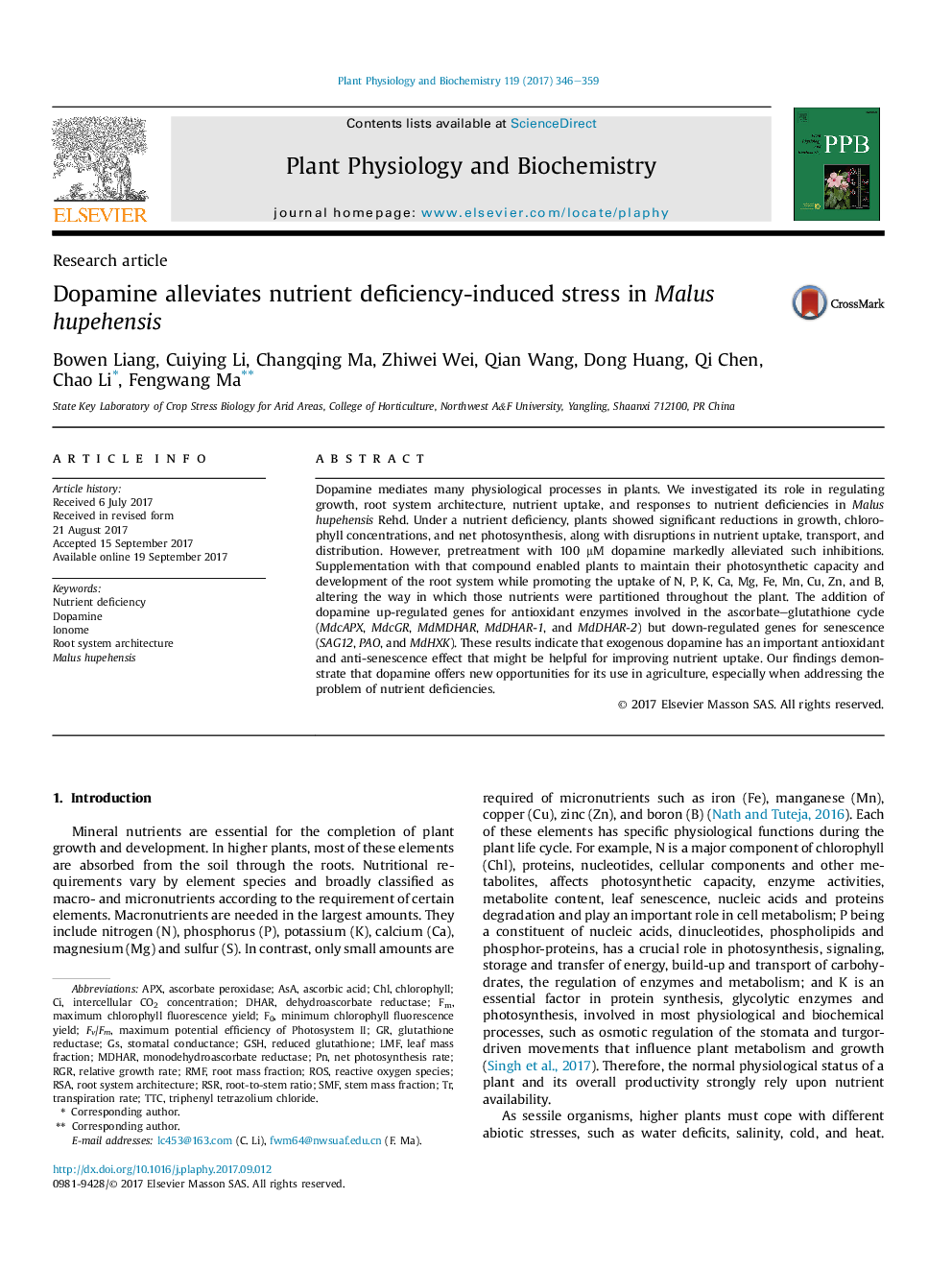| کد مقاله | کد نشریه | سال انتشار | مقاله انگلیسی | نسخه تمام متن |
|---|---|---|---|---|
| 5515318 | 1541902 | 2017 | 14 صفحه PDF | دانلود رایگان |
- The effect of nutrient deficiency-induced stress can be alleviated by dopamine.
- Dopamine positively influenced the growth and physiological parameter of Malus.
- Dopamine changed nutrient uptake, transportation and distribution.
- Dopamine increased antioxidant capacity by increasing related genes transcription.
- Dopamine increased anti-senescence effect by inhibiting related genes transcription.
Dopamine mediates many physiological processes in plants. We investigated its role in regulating growth, root system architecture, nutrient uptake, and responses to nutrient deficiencies in Malus hupehensis Rehd. Under a nutrient deficiency, plants showed significant reductions in growth, chlorophyll concentrations, and net photosynthesis, along with disruptions in nutrient uptake, transport, and distribution. However, pretreatment with 100 μM dopamine markedly alleviated such inhibitions. Supplementation with that compound enabled plants to maintain their photosynthetic capacity and development of the root system while promoting the uptake of N, P, K, Ca, Mg, Fe, Mn, Cu, Zn, and B, altering the way in which those nutrients were partitioned throughout the plant. The addition of dopamine up-regulated genes for antioxidant enzymes involved in the ascorbate-glutathione cycle (MdcAPX, MdcGR, MdMDHAR, MdDHAR-1, and MdDHAR-2) but down-regulated genes for senescence (SAG12, PAO, and MdHXK). These results indicate that exogenous dopamine has an important antioxidant and anti-senescence effect that might be helpful for improving nutrient uptake. Our findings demonstrate that dopamine offers new opportunities for its use in agriculture, especially when addressing the problem of nutrient deficiencies.
Journal: Plant Physiology and Biochemistry - Volume 119, October 2017, Pages 346-359
